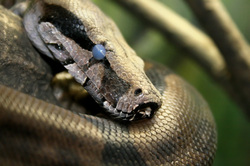Headquartered in Indiana, RodentPro provides high-quality feeder rodents raised on a special diet for maximum nutrition. Hobbyists, breeders, and zoos have recognized frozen feeder mice and similar rodents as ideal food for reptiles, since they help consumers avoid the dangers of parasites and other microorganisms that can harm reptiles. The freezing process employed by RodentPro kills these microorganisms.
Also, live animals can seriously harm reptiles and even fatally injure them. When a snake coils around a mouse, the rodent can use claws and teeth to tear into the snake’s skin or gouge its eyes. If the reptile does not immediately accept the live feeding, the rodent may retaliate against the reptile, biting at tails and other body parts. The trauma that results from these scratches or bites can cause a condition known as mouth rot in pets. Infections can lead to debilitating medical conditions, high veterinarian bills, and even death.
When individuals order frozen feeder rodents, they can conveniently stock up on food for their snakes and reptiles rather than running to the store every week to purchase live animals. RodentPro humanely euthanizes its feeder animals with the use of carbon dioxide, which causes a painless death without any chemical residuals that may harm pets.
Also, live animals can seriously harm reptiles and even fatally injure them. When a snake coils around a mouse, the rodent can use claws and teeth to tear into the snake’s skin or gouge its eyes. If the reptile does not immediately accept the live feeding, the rodent may retaliate against the reptile, biting at tails and other body parts. The trauma that results from these scratches or bites can cause a condition known as mouth rot in pets. Infections can lead to debilitating medical conditions, high veterinarian bills, and even death.
When individuals order frozen feeder rodents, they can conveniently stock up on food for their snakes and reptiles rather than running to the store every week to purchase live animals. RodentPro humanely euthanizes its feeder animals with the use of carbon dioxide, which causes a painless death without any chemical residuals that may harm pets.

 RSS Feed
RSS Feed